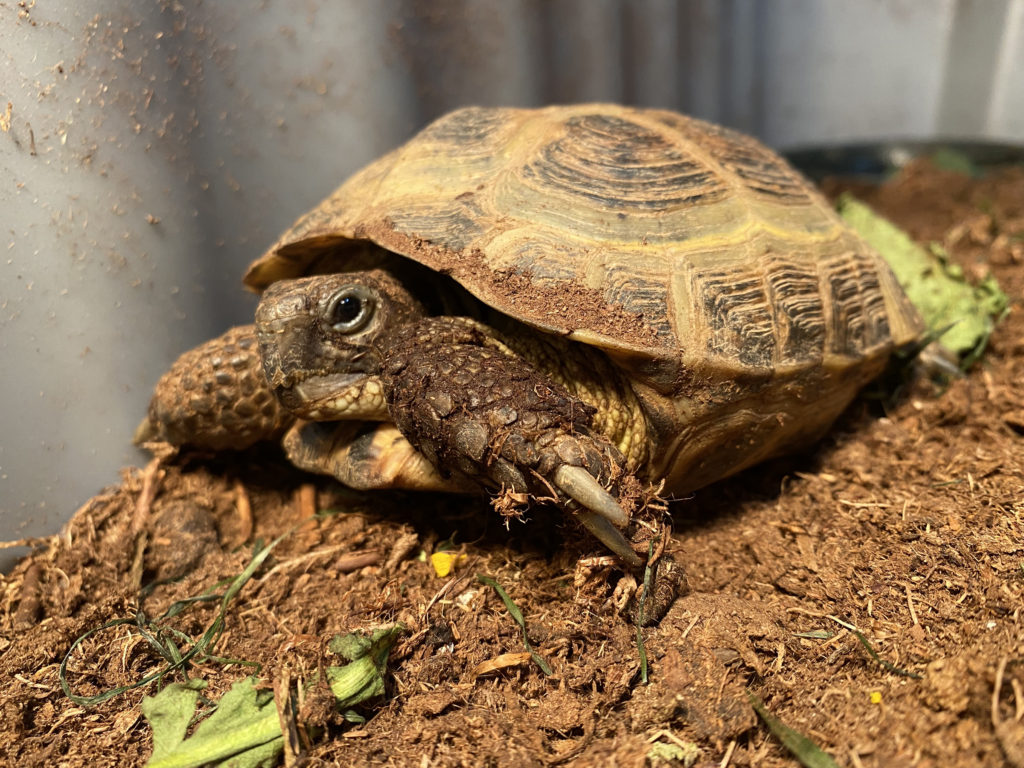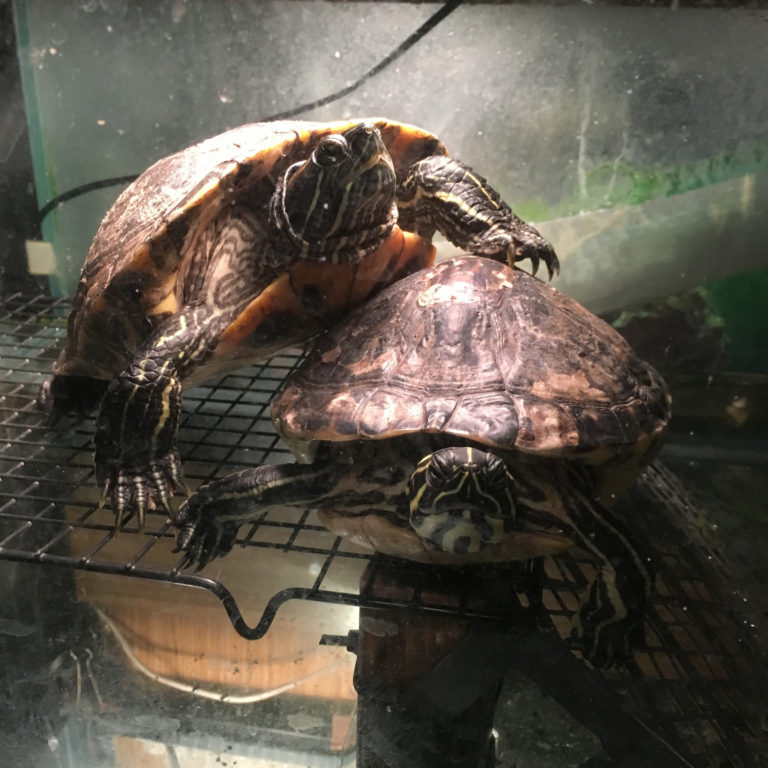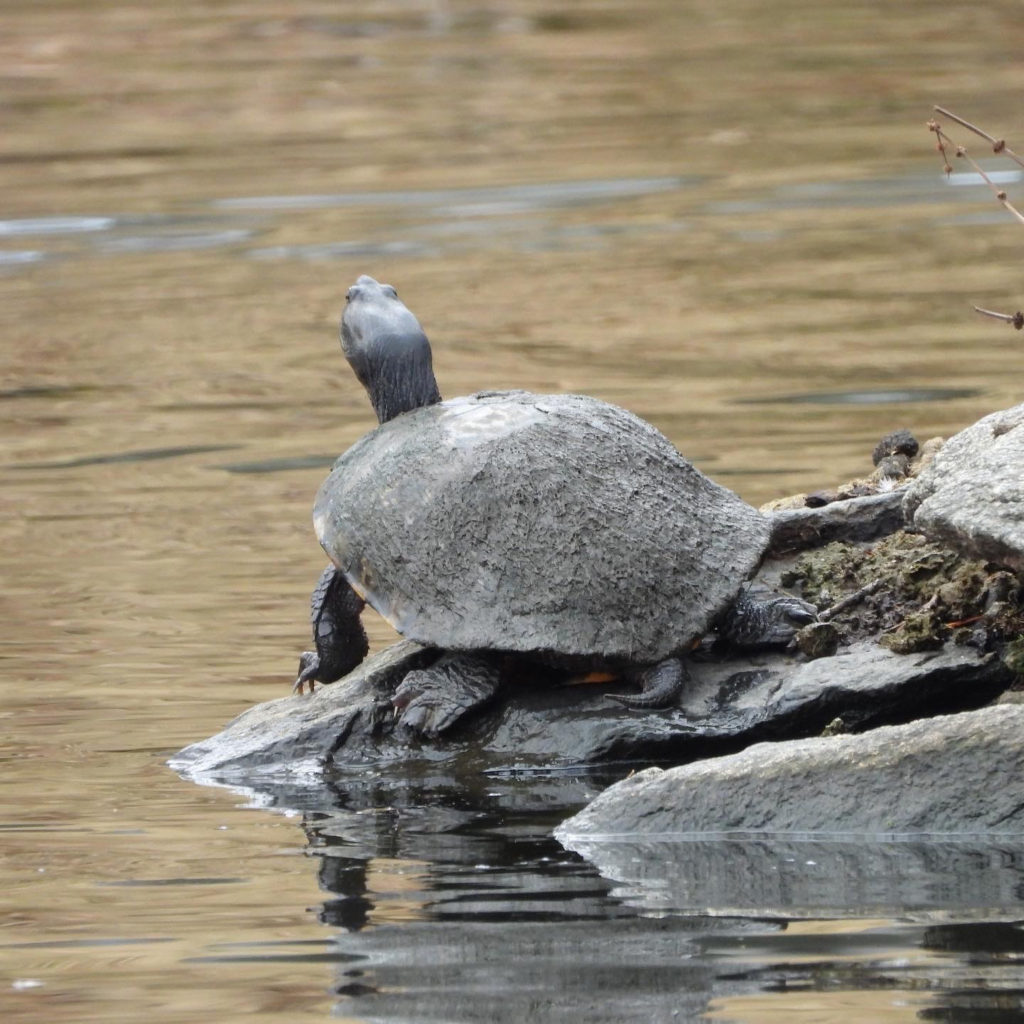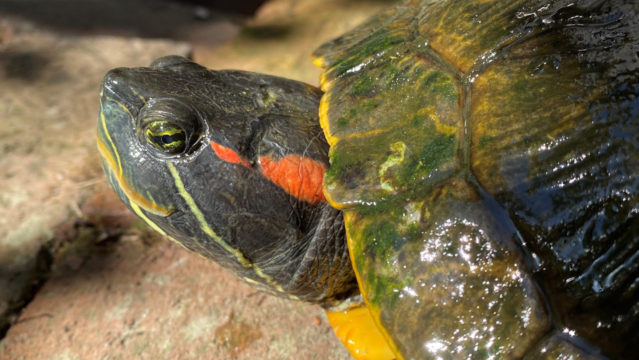Turtles are fascinating and beautiful animals, and incredibly cute as hatchlings. That makes them very tempting to buy as pets. Unfortunately, most people who take one home haven’t done their homework, and don’t realize that that cute animal, which seems as easy to care for as a goldfish or hamster, could become large, require a lot of time, money and space, and live up to 40 years.
Unwanted pet turtles are an enormous problem—one that currently has no solution. People trying to rehome their turtles far outnumber those willing to take them, and rescue facilities are scarce and already at capacity. And when desperate owners who can’t find placement for their pets release them into the wild, they threaten wild turtle populations. Many survive and breed in their new habitats, competing with the native turtles for food, space and other resources. Worse yet, turtles that have been in human captivity can carry diseases to defenseless, at-risk native species.
Red eared sliders, the most common pet turtle species, are native to the midwestern and central southern US, but this tough reptile has proven so adaptable that it has been named one of the 100 worst invasive species on the planet. More sliders show up in rehab every year, usually females full of eggs, injured on their way to nest and picked up by good samaritans who don’t recognize the alien species. Their numbers are exploding in the wild, at the expense of native species like Eastern painted turtles—a species, ironically, with which they are often confused.
As a wildlife rehabilitation facility specifically dedicated to Connecticut’s native turtles, we do not accept surrendered, non-native pet turtles. Unwanted exotics pose the same problems for us that they do everywhere: they consume valuable resources, pose a health risk to our wild patients, and are almost impossible to rehome. We do, however, often have several in need of homes who are refugees of evictions or abandoned by homeowners. If you are interested in adopting a turtle and willing to make the commitment required, contact us!
If you are thinking of rehoming your pet turtle, please visit the Mid-Atlantic Turtle and Tortoise Society website. It’s an excellent resource.
If you find a turtle in the wild that doesn’t belong there, take it with you and contact the DEEP. Most importantly, never take any turtle from the wild or release a captive turtle into the wild! It’s illegal, harmful and ruins lives.





